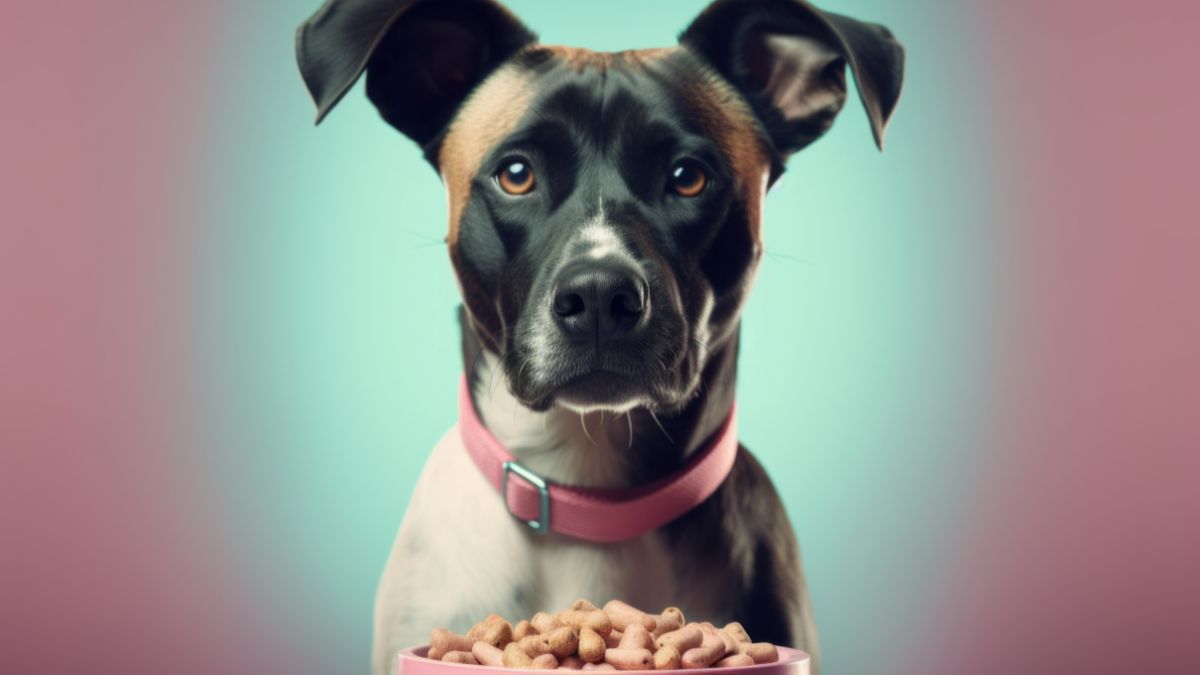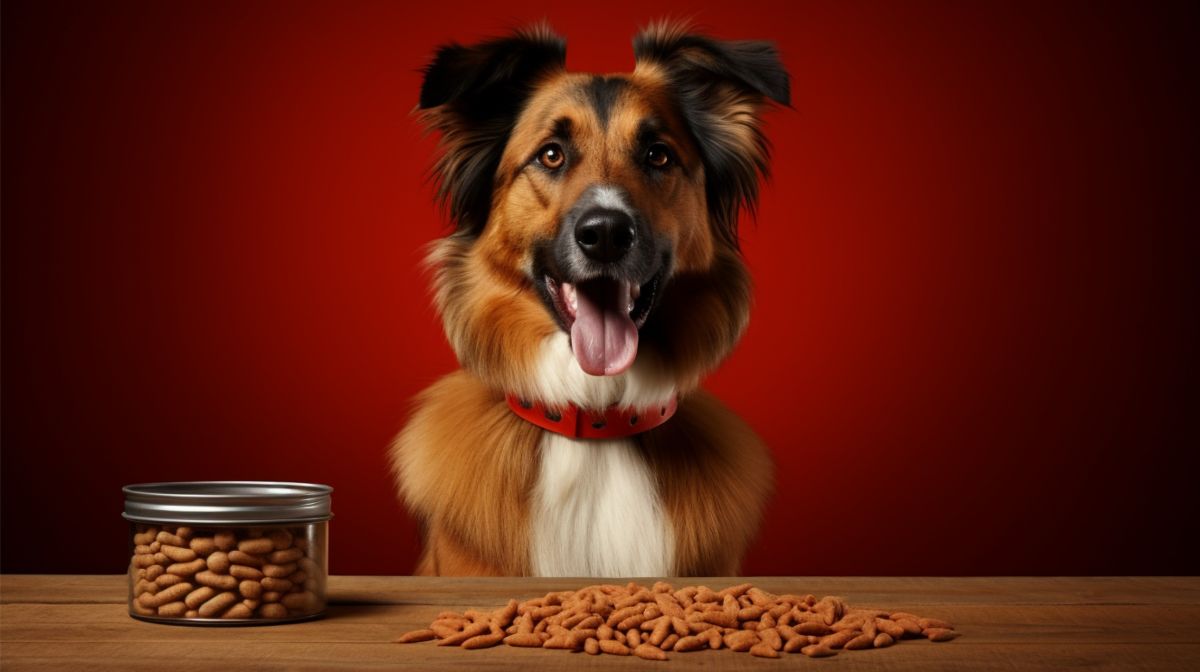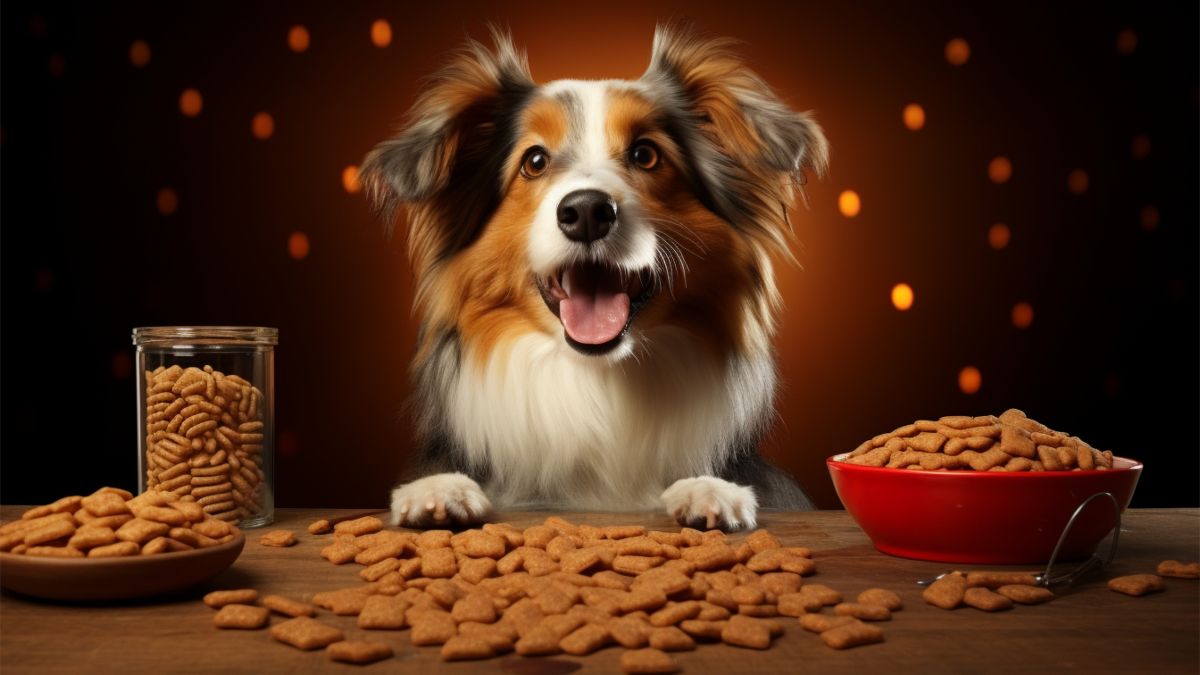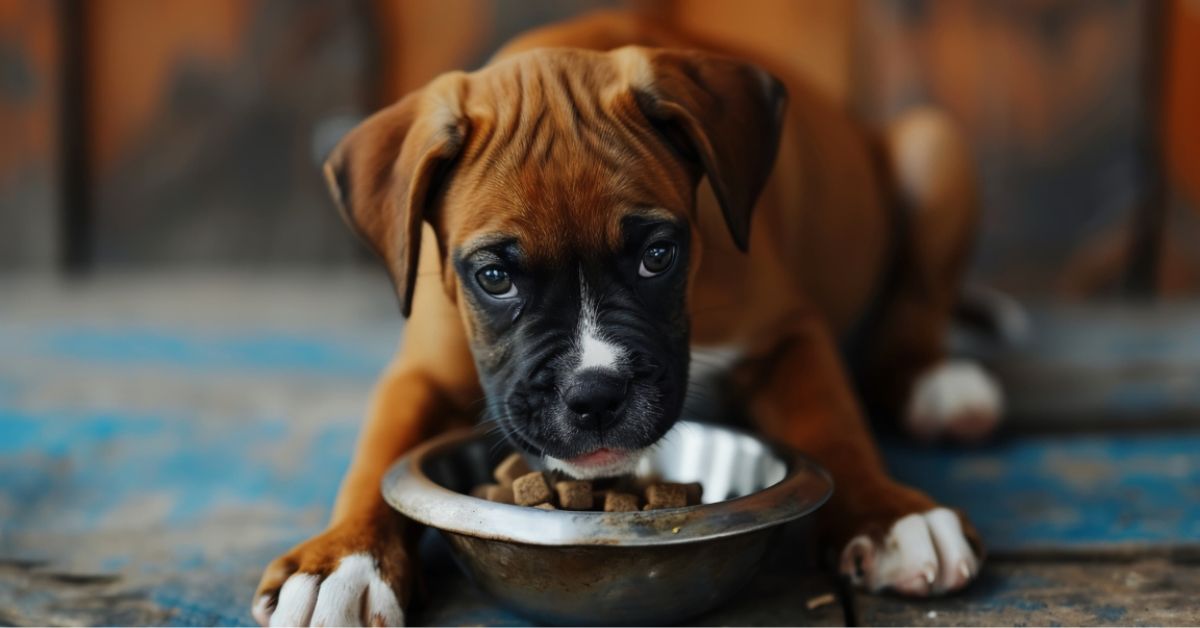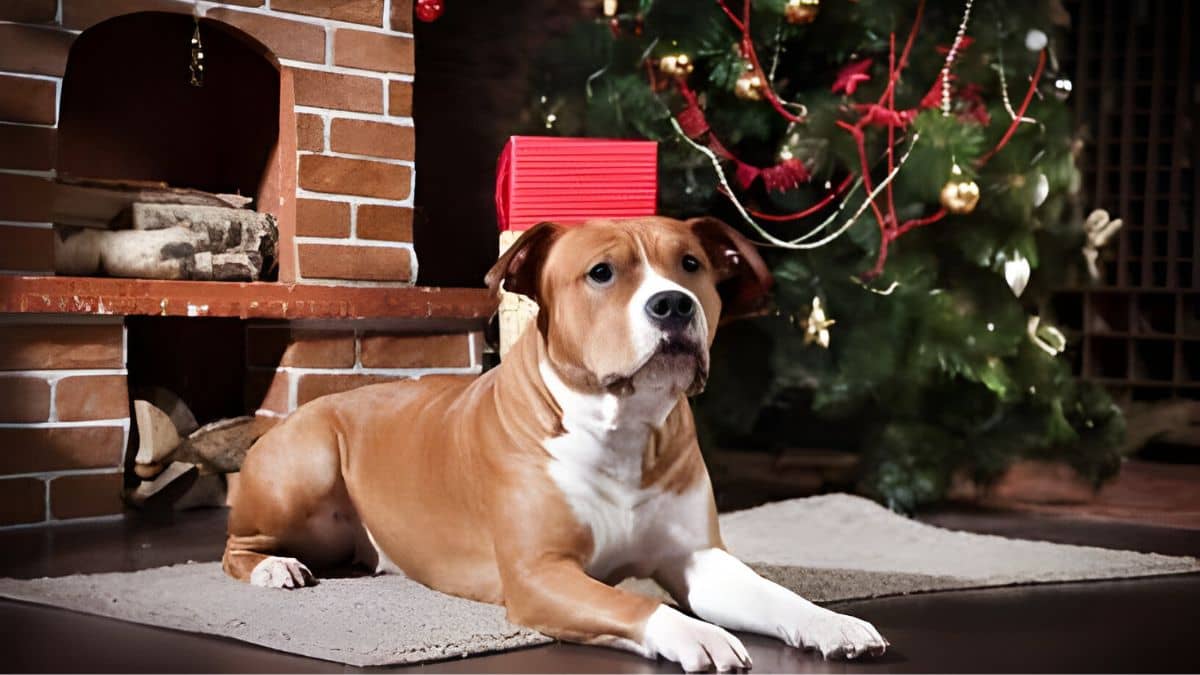With the concern and well-being, the question on what is a good dog food for pitbulls? Has arrived. Selecting the perfect food for your Pitbull is crucial for their health and happiness.
So her many more component is associated.Pitbulls are lively dogs with unique dietary requirements, so finding the right dog food that suits their needs is paramount.
With numerous options on the market, understanding the key factors for Pitbulls is essential. In this guide we will delve into those and will try to find the other questions and answers that are associated with it.

Understanding Pitbull Nutritional Needs
Proper nutrition is essential for the health and well-being of Pitbulls. These energetic and muscular dogs require a balanced diet. It helps to support their active lifestyle and maintain optimal health. Here are some key points to consider when it comes to meeting the nutritional needs of Pitbulls.
- Firstly, High-Quality Protein
Pitbulls need a diet that should be rich in high-quality protein. It helps to support their muscle development and overall health. Look for dog foods with protein sources like chicken, beef or fish listed as the first ingredient.
- Secondly, Balanced Diet
It is crucial to provide Pitbulls with a balanced diet that should include the right proportions of protein, carbohydrates, fats, vitamins and minerals. Consult with a veterinarian to determine the specific nutritional requirements for your Pitbull. It should be based on factors such as age, weight, and activity level.
- Then, Caloric Intake
Pitbulls are known for their high energy levels. So they require adequate calories to fuel their activities. However, it is essential to monitor their caloric intake. It helps to prevent obesity which lead to various health issues.
- Next, Omega-3 Fatty Acids
Omega-3 fatty acids in the diet benefit Pitbulls by supporting their skin and coat health. It also reduces inflammation and promotes heart health. Sources of omega-3 fatty acids include fish oil, flaxseed and canola oil.
- Further, Hydration
Proper hydration is essential for Pitbulls. It is especially during hot weather or vigorous exercise. Always provide access to clean and fresh water. It helps to prevent dehydration and maintain optimal health.
What is the best dog food for pitbulls with allergies?
When it comes to caring for pitbulls with allergies, choosing the right food is crucial for their health and well-being. Allergies can manifest through various symptoms like itching, rashes and digestive issues.it is essential to find a diet that addresses their specific needs. Here are some points to consider in terms of selecting the best dog food for pitbulls with allergies:
- Limited Ingredient Diet (LID)
try to find dog food formulas with limited ingredients. It helps to minimize the chances of triggering allergic reactions. LID formulas contain fewer potential allergens. it is easy to identify and eliminate problem ingredients.
- Novel Protein Sources
Look for dog foods that feature novel protein sources such as duck, venison or salmon. These proteins are less likely to have been previously consumed by your pitbull. it reducing the likelihood of allergic reactions.
- Grain-Free Options
Some pitbulls can be allergic to grains like wheat, corn or soy. Consider grain-free dog food options. Those help to avoid potential allergens that are found in traditional dog diets.
- Hypoallergenic Formulas
Explore hypoallergenic dog food formulas that are designed for dogs with food sensitivities. These formulas are formulated with easily digestible ingredients and help to alleviate allergy symptoms.
- Avoid Common Allergens
Carefully read ingredient labels to avoid common allergens such as artificial additives, preservatives and fillers. These ingredients can exacerbate allergic reactions in sensitive pitbulls.
Good dog food for baby pitbulls
Good dog food for baby pitbulls should be specifically formulated for puppies. It helps to support their growth and development. Look for a brand that provides balanced nutrition with high-quality ingredients.
Choose a formula that includes essential nutrients like protein, fat, carbohydrates, vitamins and minerals. Avoid foods with fillers, artificial additives or excessive amounts of grains.
Try to find a recipe that features real meat as the primary ingredient. it helps to support muscle development. Consider the size of the kibble. it should be small enough for your baby pitbull to chew easily. It is essential to follow feeding guidelines provided by the manufacturer and consult with your veterinarian.
What is the healthiest dog food for pitbulls?
When it comes to finding the healthiest dog food for pitbulls, there are several important factors to consider. Pitbulls are energetic and muscular dogs that require a balanced diet. Here are some key points to keep in mind in terms of selecting the best food for your pitbull.
- Firstly, prioritize high-quality protein sources
Look for dog foods with real meat that are listed as the primary ingredient. Those can be such as chicken, beef or fish. These proteins are essential for supporting your pitbull’s muscle development and overall health.
- Secondly, choose dog foods with a balanced blend of carbohydrates
Pitbulls need protein for energy. They also benefit from carbohydrates for sustained endurance. Try to find whole grains like brown rice or oatmeal which provide fiber and essential nutrients.
- Additionally, ensure that the food contains healthy fats
Omega-3 and Omega-6 fatty acids are vital for maintaining your pitbull’s skin and coat health. Look for ingredients like salmon oil or flaxseed which are rich in these beneficial fats.
- Moreover, avoid artificial additives and fillers
Artificial colors, flavors and preservatives are harmful to your pitbull’s health. Select dog foods that are free from unnecessary additives and focus on natural ingredients instead.
- Furthermore, consider your pitbull’s specific dietary needs
Some pitbulls can have food sensitivities or allergies. So choose a dog food that meets their individual requirements. Consulting with your veterinarian can help you to identify any dietary restrictions your pitbull.
- Lastly, monitor your pitbull’s weight and adjust their food intake accordingly
Pitbulls can be prone to obesity. So, portion control is crucial. Follow the feeding guidelines that are provided by the dog food manufacturer. Make adjustments based on your pitbull’s activity level and body condition.
What foods Pit Bulls Cannot eat?
Pit Bulls should not eat certain foods that are harmful to their health. With the ushered phenomenon it is as crual as the ask on what is a good dog food for pitbulls?
These include chocolate, grapes, raisins, onions, garlic, avocado, caffeine, alcohol and foods high in fat.Chocolate contains substances that are toxic to dogs and can cause vomiting, diarrhea and even death. Grapes and raisins can lead to kidney failure in dogs. Onions and garlic can damage a dog’s red blood cells.
It can cause anemia. Avocado contains a substance that is called persin which is toxic to dogs. Caffeine and alcohol can cause serious health problems and be fatal to dogs.
Foods high in fat can lead to pancreatitis. It is a painful and life-threatening condition in dogs. It is important to keep these foods away from Pit Bulls.
Do Pit Bulls need a special diet?
Pit Bulls do not need a special diet but they do require a balanced and nutritious one. It is just like any other dog. Their diet should include high-quality dog food that meets their nutritional needs.
It is important to feed them a diet that should be rich in proteins, fats, carbohydrates, vitamins and minerals. Avoid feeding them too many treats or table scraps because it can lead to health problems like obesity.
Some Pit Bulls can have allergies or sensitivities to certain ingredients, so it is essential to monitor their reactions and adjust their diet accordingly.
Top Ingredients to Look for in Pitbull Dog Food
In terms of selecting the right food for your pitbull, it is essential to consider their specific nutritional needs. Here are some key ingredients to look for in the case of choosing pitbull dog food.
- Firstly, prioritize high-quality animal protein sources such as chicken, beef or fish. These proteins are essential for maintaining your pitbull’s muscle mass and overall health.
- Secondly, try to find foods that are rich in healthy fats like omega-3 and omega-6 fatty acids. These fats support your pitbull’s skin and coat health. It also reduces the risk of dryness and itchiness.
- Next, look for carbohydrates from whole grains like brown rice or oatmeal. Carbohydrates provide energy for your pitbull’s active lifestyle and help to support digestive health.
- Additionally, seek out foods with a variety of fruits and vegetables. These ingredients provides essential vitamins, minerals and antioxidants. Those help to support your pitbull’s immune system and overall well-being.
- Moreover, consider foods that are fortified with glucosamine and chondroitin. These supplements promote joint health and mobility. It is crucial for pitbulls that are prone to hip dysplasia and arthritis.
- Lastly, ensure the food contains essential vitamins and minerals. It should include vitamin E, vitamin C, and zinc. Those help to support your pitbull’s overall health and vitality.
Tips for Transitioning Your Pitbull to a New Dog Food
Transitioning your Pitbull to a new dog food requires careful consideration and a gradual approach. It helps to ensure a smooth adjustment. Here are some essential tips to make the process as stress-free as possible.
- Firstly, start by introducing the new food gradually
Mix a small amount of the new food with their current food. Try to increasing the ratio slowly over the course of a week. This supports your Pitbull’s digestive system to adapt without causing any sudden changes.
- Secondly, monitor your dog’s behavior and health during the transition
Keep an eye out for any signs of discomfort, digestive issues or allergies. If you notice any adverse reactions, consult your veterinarian for guidance on adjusting the transition plan.
- Additionally, maintain consistency in feeding times
Stick to a regular schedule to help your Pitbull to establish a routine. Try to make the transition more predictable.
- Furthermore, stay patient throughout the process
Some dogs can take longer to adjust than others, so be prepared for variations in individual response. Patience is key to ensuring a positive experience.
- Moreover, provide plenty of fresh water during the transition
Hydration is crucial for the overall well-being of your Pitbull. It helps in the digestion of the new food.
- Lastly, consider the nutritional needs of your Pitbull
Choose high-quality dog food that meets their specific requirements. Try to consider factors like age, size, and activity level.
Conclusion
To sum up, with the question on what is a good dog food for pitbulls?
Providing high-quality dog food is fundamental for their overall well-being. Prioritizing a diet with ample protein, balanced nutrition and devoid of harmful additives is key.It helps to ensure your Pitbull’s health and vitality.
It is crucial to consult with your veterinarian to customize your Pitbull’s diet according to their specific needs. You also have to keep a close eye on their health. With the right food, your Pitbull will be able to enjoy a joyful and active life by your side for many years to come.
